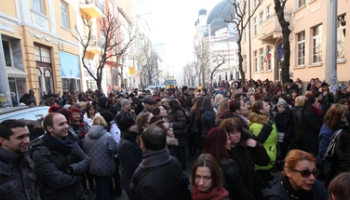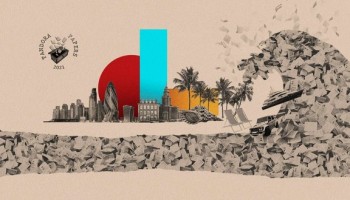The bill, that was passed by parliament, would have created a special unit devoted to tackling high-level abuse, however, Radev claimed it did not offer the means to effectively investigate corruption networks.
"I believe that the adopted law not only does not create an adequate legal basis for tackling corruption but will even make it difficult to fight it," Radev said in a statement.
The law would have merged anti-corruption agencies but did not allow anonymous complaints against politicians. Therefore, he argued, the safety of future whistleblowers was not guaranteed.
The leader of the opposition Socialist Party said the bill’s veto created "a golden opportunity" for the government to draft more effective anti-corruption legislation, Reuters reported. "If we do not tackle corruption, we cannot solve any of the other problems - poverty, health, education, demography," said Kornelia Ninova.
The bill will return to parliament - which has the power to approve the proposed legislation unchanged - for further debate.
Bulgaria is the most corrupt country in the EU, according to Transparency International’s perceptions index. The move is likely to reinforce the notion that the country’s rulers are resistant to wide ranging reform.
The Black Sea country has made few inroads in the effort against organised crime and corruption. The European Commission, the EU’s executive, has frequently criticised Bulgaria for failing to prosecute and sentence officials alleged to have been involved in corrupt activities.
“No one [in Bulgaria] is prosecuting political corruption, there are no ex-government officials in jail,” said Ognian Shentov, chairman of the Centre for the Study of Democracy in Sofia. “We have reached a stage of state corruption which we describe as state capture.”
A report by his organisation describes a clientilist regime and an economy held in the grip of rampant corruption that shows little sign of abating. The investigation found that high levels of political corruption are exacerbated by management level corruption amongst public officials.
It goes on to note how companies are able to steer government policy in their interest. The monopolies that many companies command in their specific industries mean they often face little competition in obtaining privileged access to public resources through government procurement contracts.
For instance, the Bulgarian subsidiary of Lukoil, the privately-owned Russian energy company that supplies all of Bulgaria’s oil, has seen its monopoly entrenched by successive governments with laws that discourage competition.
State capture has also been used by shady businesses to ensure protection for their operations in the hidden or even black economies, the report reads.
More than one in five adults, 1.3 million, are believed to have been party to a corrupt transaction, such as paying or receiving a bribe, however only 72 such court cases were completed in 2015, the Guardian reported.
Corruption has put off foreign investment since the collapse of communism and the opening up of the economy. The EU has kept Sofia, and neighboring Romania, outside the passport-free travel Schengen zone, due to the failure to uphold the rule-of-law.






